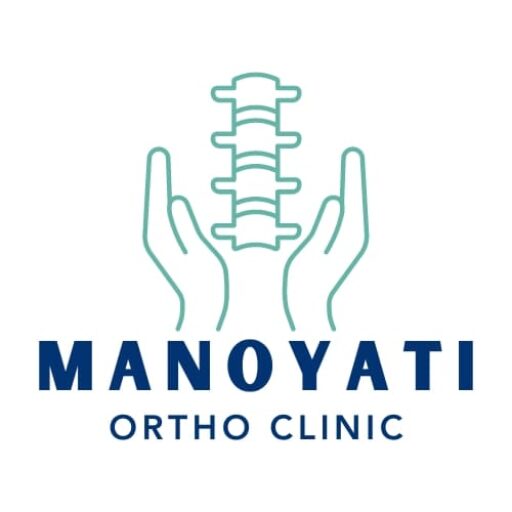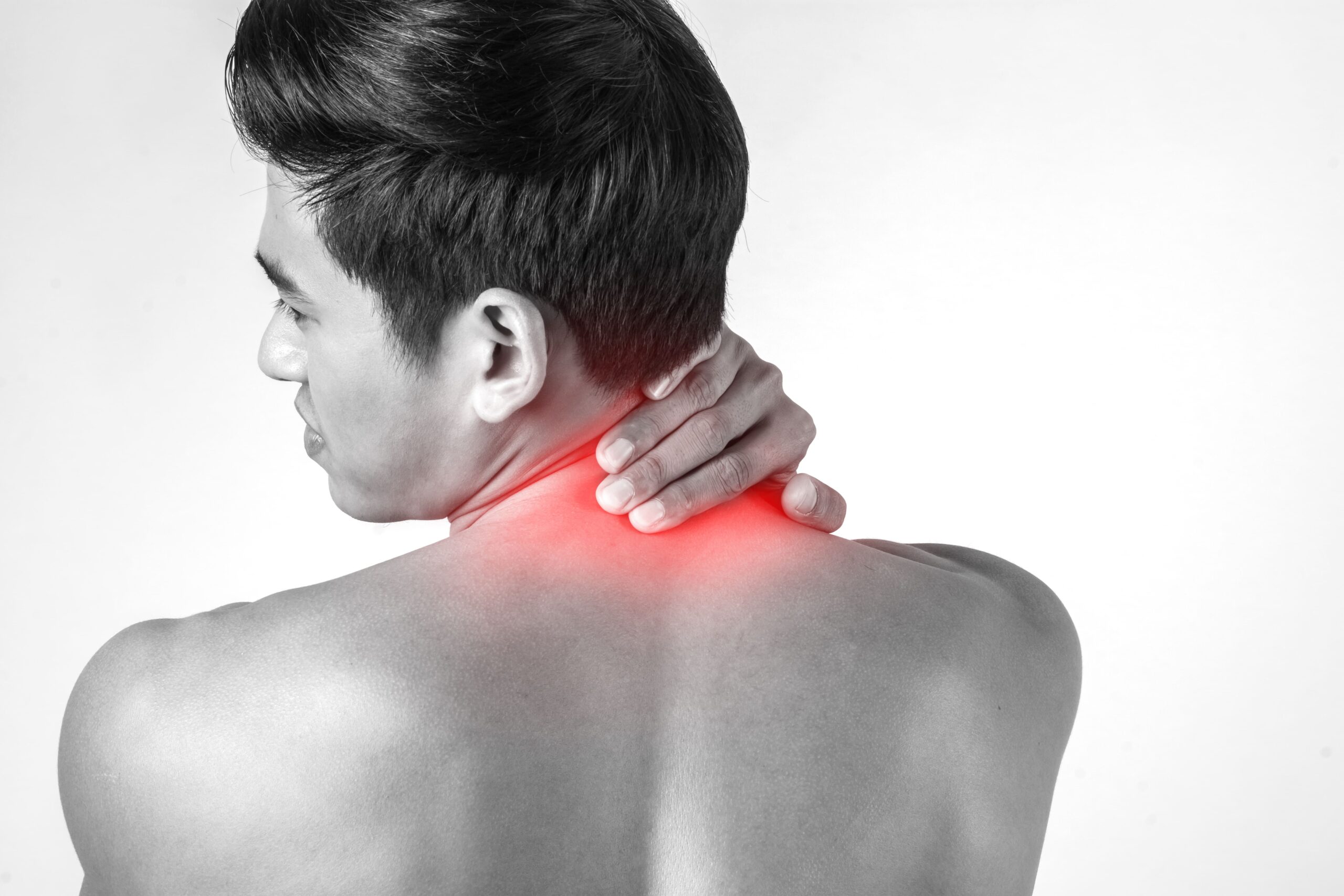Best Neck Pain Treatment in Delhi NCR: Causes, & Symptoms
Overview
Neck pain is a common ailment that affects millions of people globally, with most individuals experiencing it at some point in their lives. It can range from a mild, temporary discomfort to severe, chronic pain that impairs daily activities. The neck, also known as the cervical spine, is a complex structure composed of vertebrae, muscles, ligaments, nerves, and discs, all of which play a vital role in supporting the head and allowing movement. Due to its delicate anatomy and its role in mobility, the neck is particularly susceptible to injury and wear and tear. For those Seeking Relief, it is imprtant to consult with spine specialist Dr. Manoj Kumar, known for offering the Best Neck Pain Treatment in Delhi NCR, where specialized care and effective solutions are provided for various neck pain issues.
Causes Of Neck Pain
Neck pain can be caused by a wide range of factors, including muscle strain, poor posture, injury, underlying medical conditions, and degenerative changes. For individuals suffering from neck pain symptoms or back pain, seeking expert care is crucial. For the Best Neck pain Treatment in Delhi NCR, visit spine specialist Dr. Manoj Kumar, who offer personalized and effective neck pain treatments tailored to the specific needs of each patient.
- Muscle Strain
The most common cause of neck pain is muscle strain, often due to poor posture or overuse. This type of neck pain typically arises from:
- Sitting or standing in a hunched position for prolonged periods, such as while using a computer, phone, or during long drives.
- Sleeping in an awkward position, which can cause the neck muscles to become stiff or strained.
- Carrying heavy loads on one side, such as a bag or backpack, can cause uneven stress on the neck muscles.
- Repetitive movements that involve the neck, such as during sports or work-related activities.
- Injury
Neck injuries, particularly those involving sudden or forceful movement, can lead to pain and discomfort. A common neck injury is whiplash, which occurs during car accidents or falls where the head is jerked forward and then backward. This abrupt motion can strain or tear the muscles, ligaments, and tendons in the neck.
- Poor Posture
Modern lifestyles, characterized by extended periods of sitting or poor ergonomics, are a significant contributor to neck pain. Spending hours in front of computers, on smartphones, or slouching in chairs can lead to forward head posture, where the head is positioned ahead of the body, putting undue pressure on the neck muscles and spine.
- Degenerative Conditions
As people age, the spine undergoes degenerative changes, which can lead to chronic neck pain treatment in Delhi NCR. Conditions like cervical spondylosis (also known as arthritis of the neck) and degenerative disc disease can cause wear and tear of the discs and joints in the cervical spine. Over time, these changes can result in bone spurs, herniated discs, or narrowing of the spinal canal, leading to neck pain, stiffness, and nerve compression.
- Herniated Disc
A herniated disc occurs when the soft inner material of a cervical disc leaks out through a tear in the outer layer. This can irritate nearby nerves, resulting in neck pain that radiates to the shoulders, arms, or hands (a condition known as cervical radiculopathy). A herniated disc in the cervical spine is typically caused by trauma or degeneration.
- Medical Conditions
Certain medical conditions can also lead to neck pain, including:
Infections: In rare cases, infections in the bones (osteomyelitis) or meningitis can cause neck pain.
Fibromyalgia: A chronic condition characterized by widespread muscle pain, including the neck.
Cervical spinal stenosis: A narrowing of the spinal canal in the neck, which can compress the spinal cord and nerves, leading to pain, weakness, and numbness.
- Psychological Stress
Emotional stress and tension can lead to muscle tightness in the neck and upper back, contributing to pain and discomfort. Chronic stress often manifests physically, with neck and shoulder muscles tightening, leading to tension headaches and neck pain.
For those effective treatment and diagnosis of neck pain, Dr. manoj Kumar is highly reagarded for offering the Best Neck Pain Treatment in Delhi NCR, addressing all the above mentioned cuses with personalized care.
Symptoms of Neck Pain
The symptoms of neck pain can vary depending on the underlying cause, and they may range from mild to severe. Common symptoms of neck pain include:
- Localized Pain
Neck pain can be sharp or dull, and it may be confined to a specific area. Muscle tightness or spasms are common, especially when caused by strain or poor posture.
- Stiffness and Limited Mobility
People with neck pain often experience stiffness in the neck, which can limit their range of motion. It may be difficult or painful to turn the head from side to side, look up or down, or tilt the head.
- Radiating Pain
In some cases, neck pain can radiate to other areas of the body, such as the shoulders, arms, or upper back. This is often due to nerve irritation or compression, such as in cervical radiculopathy, where pain shoots down one arm or into the hands.
- Headaches
Neck pain is frequently associated with headaches, particularly tension headaches or cervicogenic headaches, which are caused by problems in the neck. These headaches typically start at the base of the skull and radiate to the forehead.
- Numbness and Tingling
If a nerve in the neck is compressed or irritated, it can lead to symptoms of numbness, tingling, or weakness in the arms or hands. This is commonly seen in conditions like herniated discs or cervical spinal stenosis.
- Muscle Weakness
In more severe cases, nerve compression can result in muscle weakness in the arms, hands, or even legs, affecting coordination and movement.
- Dizziness or Balance Problems
Some individuals with neck issues may experience dizziness or problems with balance, particularly if there is nerve involvement or if cervical vertebrae are out of alignment.
For the Best neck Pain Treatment in Delhi NCR, individuals can consult with spine specialist such as Dr. Manoj Kumar, who offer comprehesive diagnosis and treatment plans tailored to the specific needs of patient suffering from neck pain.
Diagnosis of Neck Pain
Diagnosing the cause of neck pain often involves a combination of clinical evaluation, imaging studies, and possibly additional diagnostic tests.
- Physical Examination
A thorough physical exam is usually the first step in diagnosing neck pain. This includes assessing the range of motion, examining the muscles for tenderness or tightness, and evaluating for any signs of nerve compression or weakness.
- Imaging Studies
Imaging studies such as X-rays, MRI (magnetic resonance imaging), or CT (computed tomography) scans are often used to assess the structures of the cervical spine. These studies can help identify conditions such as herniated discs, bone spurs, arthritis, or spinal stenosis.
- Electromyography (EMG)
If nerve damage is suspected, an EMG or nerve conduction study may be performed to assess the electrical activity of muscles and nerves in the neck and arms.
For personalized diagnosis and the best neck pain treatment in Delhi NCR, Dr. Manoj Kumar is a trusted expert known for his advanced diagnostic approach and effective treatments.
Why Choosing Best Neck Pain Treatment in Delhi NCR
The effective neck pain treatment in delhi ncr depends on the underlying cause, severity of symptoms, and the patient’s overall health. Treatments range from conservative measures to surgical interventions in more severe cases.
- Conservative Treatments
Rest and Activity Modification:
For acute neck pain, resting the neck and avoiding activities that aggravate the pain can help reduce symptoms. However, prolonged inactivity is not recommended, as it can lead to muscle weakness and stiffness.
Physical Therapy:
Physical therapy is one of the best neck pain treatment in Delhi NCR. A physical therapist can guide patients through exercises and stretches that strengthen the neck muscles, improve posture, and enhance flexibility. Techniques like traction, massage, and heat/cold therapy may also be used to relieve pain and stiffness.
Medications:
Over-the-counter pain relievers, such as ibuprofen or acetaminophen, can help manage mild to moderate pain. For more severe pain, muscle relaxants or prescription-strength medications may be prescribed. Topical analgesics and anti-inflammatory creams can also provide relief and are often included in a comprehensive treatment plan suggested by the Best Neck Pain Specialist in Delhi NCR such as Dr. Manoj Kumar.
Posture Correction and Ergonomic Adjustments:
Making adjustments to workstations, chairs, and sleeping positions can significantly reduce neck pain caused by poor posture. Using a supportive chair, maintaining proper posture, and using a pillow that supports the natural curve of the neck can alleviate strain.
Neck Braces:
In some cases, a soft neck collar or brace may be recommended to provide temporary support and allow the neck muscles to rest. However, prolonged use is discouraged to prevent muscle weakening. For Patients under the care of Dr. Manoj Kumar, neck braces may be used as a part of a tailored approach for Chronic Neck Pain Treatment in Delhi NCR.
2. Advanced and Surgical Treatments
Injections
Corticosteroid injections or nerve blocks may be used to provide longer-lasting relief from severe neck pain, particularly if the pain is due to inflammation or nerve compression. These injections are typically guided by imaging studies, these treatments are often recommended by the Best Neck Pain Specialist in Delhi NCR for their presence and effectiveness. For those dealing with chronic neck pain, then these injections can significantly alleviate discomfort and improve mobility.
Surgery
Surgery is usually considered a last resort and is reserved for cases where conservative treatments have failed, and there is evidence of nerve compression, spinal cord compression, or significant structural abnormalities. Common surgical procedures for neck pain include:
Discectomy: Removal of a herniated or damaged disc.
Cervical spinal fusion: Fusing two or more vertebrae together to provide stability and reduce pain.
Laminectomy: Removing part of a vertebra to relieve pressure on the spinal cord or nerves.
Prevention of Neck Pain
Preventing neck pain involves maintaining a healthy posture, staying active, and adopting ergonomic practices.
Ergonomics: Ensure that workstations and computer setups are ergonomically designed to minimize strain on the neck.
Exercise: Regular exercise that focuses on strengthening the neck and shoulder muscles can help prevent neck pain.
Posture: Maintain good posture, whether sitting, standing, or sleeping.
Breaks: Take frequent breaks from sitting or repetitive tasks to avoid muscle strain. This practice is recommended as part of Best Neck Pain Treatment in DelhI NCR, encourages movement and reduces the risk of muscle stiffness and tension.
Stress Management: Reducing stress through relaxation techniques or yoga can prevent muscle tension and neck pain.
For those seeking the Best Neck pain Specialist in Delhi NCR, preventive measures can play a significant role in managing and avoiding further issues.
Conclusion
Neck pain is a common problem across the world that occurs due to various reasons such as poor posture, Muscle strains, injuries, age-related degeneration, and from other conditions such as rest, physical therapy, and ergonomic adjustments. Significant impact on quality of life restriction of movement work efficiency and overall well-being. For this reason, early intervention is therefore necessary. Seek advice from Neck Pain Specialist Dr. Manoj Kumar who can help in identifying the main causes of neck pain and determine the most effective way to treat the Best Neck Pain Treatment in Delhi NCR, be it through therapeutic exercises. Taking visionary steps to preserve your neck and health, such as maintaining good posture. Exercise regularly and stress management. It can play an important role in preventing future neck problems and support long-term spinal health.

